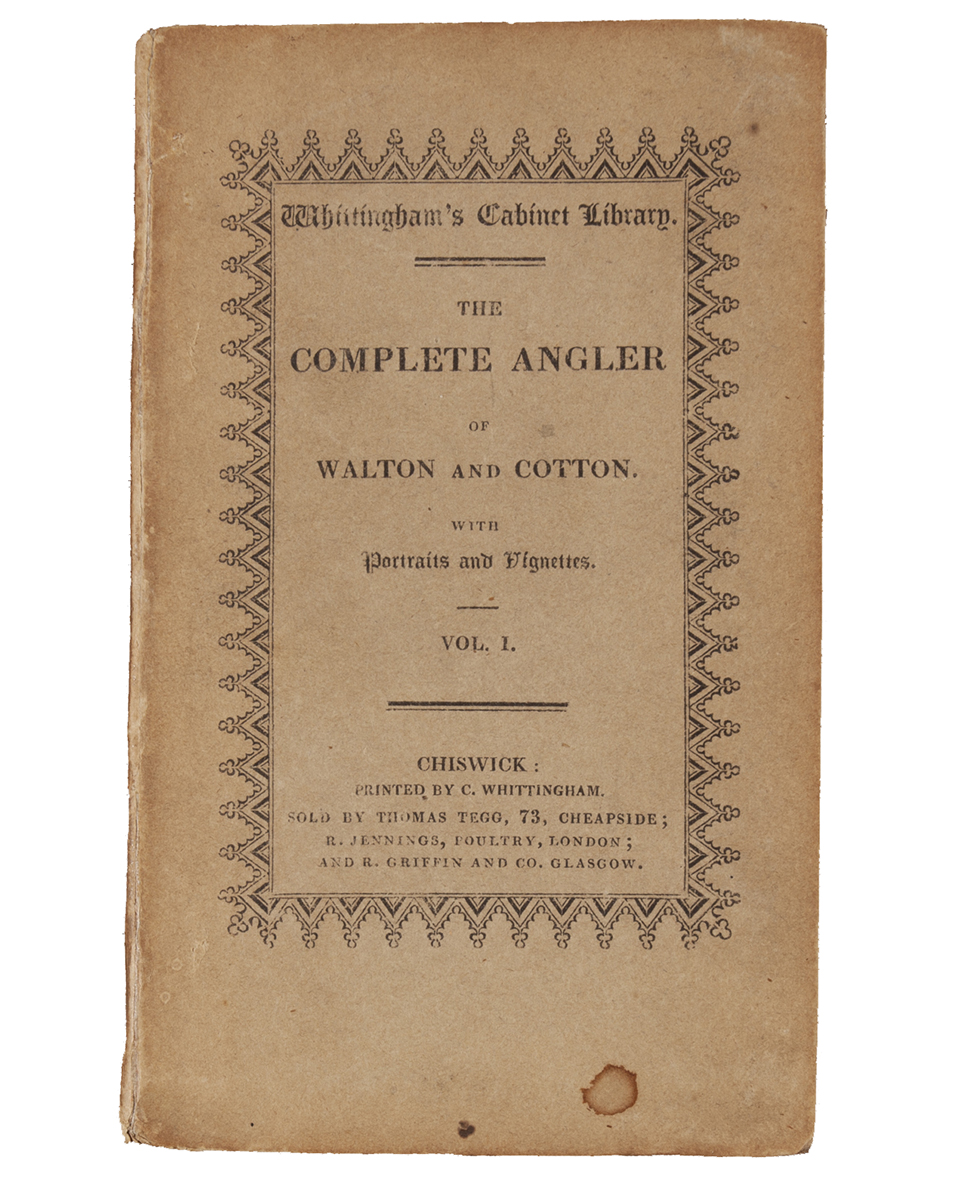 The arrival of warmer temperatures and ice-out on New England’s ponds, lakes, and rivers sees an increase in outdoor activities. One of those is fishing, a pastime engaged in by Henry Wadsworth Longfellow as a boy, and a subject referred to in some of his poetry. Our Object of the Month for April is Longfellow’s personal copy of The Compleat Angler, a 17th century guide to all things fishing.
The arrival of warmer temperatures and ice-out on New England’s ponds, lakes, and rivers sees an increase in outdoor activities. One of those is fishing, a pastime engaged in by Henry Wadsworth Longfellow as a boy, and a subject referred to in some of his poetry. Our Object of the Month for April is Longfellow’s personal copy of The Compleat Angler, a 17th century guide to all things fishing.The Compleat Angler was written by Izaak Walton and first published in London in 1653. Walton was variously described as both a linen draper and an ironmonger, but he was no stranger to literary pursuits, even counting among his friends the English poet John Donne. Including illustrations, poetry and prose, The Compleat Angler was a treatise on and sort of paean to not just fishing, but general enjoyment of the outdoors and the experience of being in and a part of nature. At times the narrative is even spiritual in character. The book went through numerous revisions during the 17th century, with the last edition revised by Walton published in 1676. It remains one of the most reprinted English language books ever.
Longfellow’s copy of The Compleat Angler was published in 1824, when he was just a seventeen-year-old aspiring writer. We know this copy belonged to him because of his autograph written inside the book’s front cover, but just when he acquired it is unclear. Henry does not record fishing outings as an adult in his journals nor mention personally taking up rod and reel in his correspondence, but his children did fish, especially his sons during summer sojourns in Nahant on the coast north of Boston. Fishing featured in some of his poems, perhaps most notably in “The Angler’s Song”. The poem was published in the U.S. Literary Gazette in 1825 only a year after Longfellow’s copy of The Compleat Angler was released; perhaps the book played a role in the poem's conception. Reportedly inspired by fishing trips to the Curtis River in Gorham, Maine during his youth, the poem includes the following lines:
Where the embracing ivy holds
Close the hoar elm in its folds
In the meadow’s fenny land,
And the winding river sweeps
Through its shallows and still deeps,
Silent with my rod I stand.
